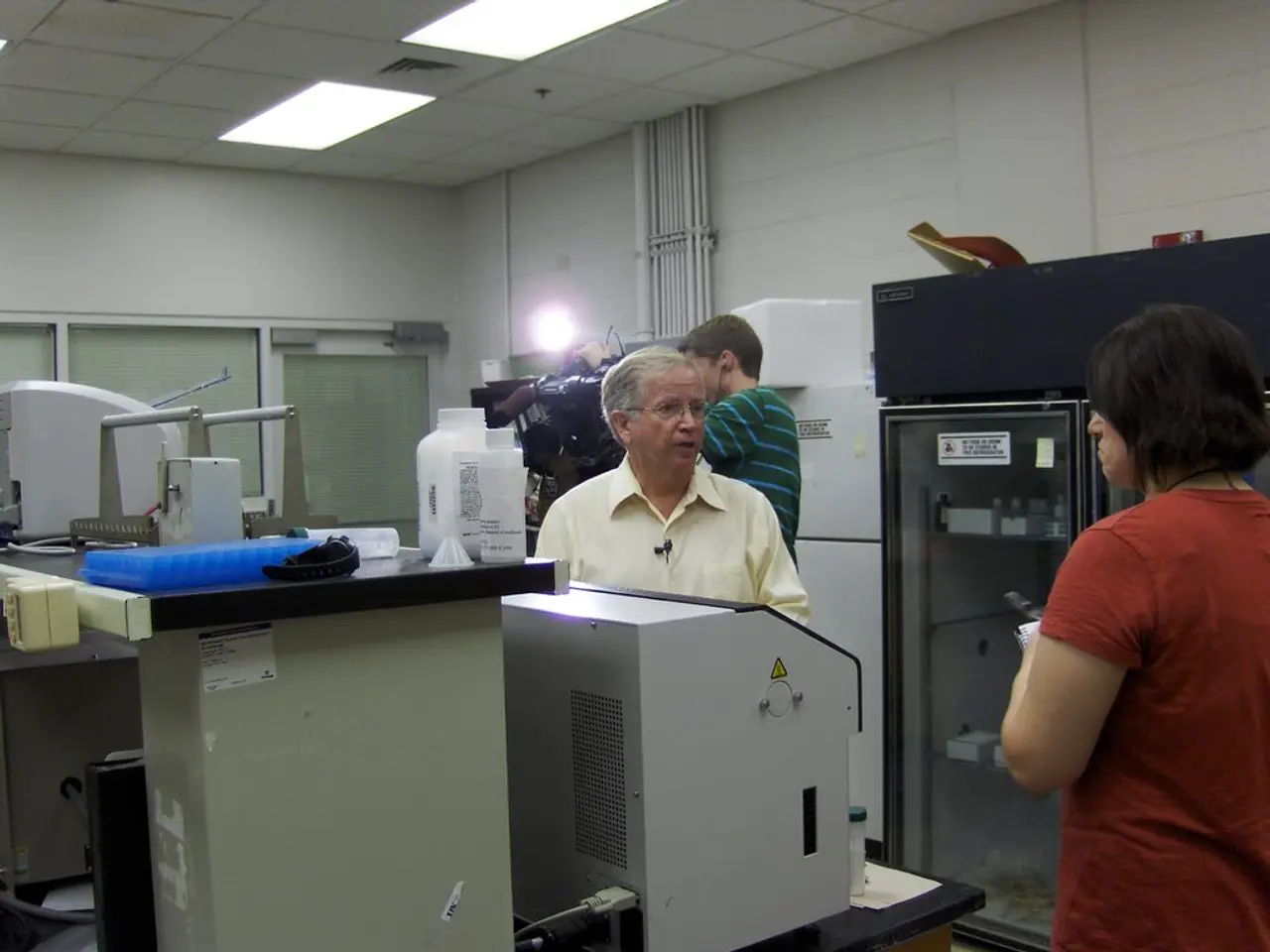Revolution in Enterprise AI by OpenAI
==============================================================
In the rapidly evolving landscape of artificial intelligence (AI), OpenAI has emerged as a pivotal force, driving the transformation of enterprise operations across various sectors. This revolution represents a fundamental shift in how businesses operate and compete.
OpenAI's enterprise AI solutions have proven adaptable across diverse industries, from heavy industry to consumer services. The company's impact is profound, driving hyperautomation, enhancing customer engagement, optimizing operations, and enabling new product innovations. Key developments include the introduction of advanced AI models like GPT-4.1, which supports extremely long context and excels at coding, and multimodal AI with improved image generation. OpenAI's partnerships with major corporations such as Mattel (for AI-enabled toys) and SoftBank (for large-scale enterprise AI deployment) demonstrate its integration into diverse sectors.
The enterprise adoption of OpenAI's tools has powered automation and data analysis across business functions like marketing, finance, supply chain, and human resources. This broad deployment underpins a surge in OpenAI's revenue, hitting a $12 billion annualized milestone in mid-2025, reflecting strong market demand for generative AI solutions in global enterprises.
Looking forward, several trends and developments are expected to shape the future of AI in industry. Advances in multimodal AI, hyperautomation at scale, integration with emerging technologies like blockchain, augmented reality, and edge computing, and the rise of intelligent AI agents within OpenAI's ecosystem will expand AI capabilities and boost productivity and innovation.
However, the future of AI is not without challenges. Ongoing debates around privacy, data usage, AI ethics, job impacts, and legal scrutiny are expected to influence AI deployment strategies and governance frameworks.
In the utilities sector, Duke Energy's strategic AI implementation includes predictive maintenance, demand forecasting, and automated grid optimization. The travel industry, too, is adopting AI rapidly, with companies implementing AI-powered booking systems, predictive analytics for demand management, and automated customer service solutions.
The key to success lies in strategic implementation, careful consideration of industry-specific needs, and a commitment to continuous innovation. Companies implementing AI solutions are reporting faster returns on investment, particularly in operational efficiency and cost reduction. AI systems will increasingly handle complex decision-making processes, particularly in areas requiring rapid response to changing conditions.
AI integration is becoming increasingly sophisticated, with applications extending beyond traditional computational tasks to physical world interactions. Collaborative innovation between AI providers and enterprises will drive innovation in specific industry applications. AI integration is essential for business survival and growth, with major corporations implementing sophisticated AI solutions.
OpenAI's strategic positioning focuses on democratizing advanced AI capabilities while maintaining robust safety measures and ethical considerations. The future will see deeper integration of AI with other advanced technologies, smarter autonomous agents, and a complex regulatory landscape shaping AI’s role in the economy. AI adoption is increasingly viewed as essential for maintaining market position rather than an optional enhancement.
In conclusion, OpenAI's enterprise AI revolution represents a significant leap forward in business transformation, establishing the company as a central player in the AI-driven future of business. The future will be characterized by deeper integration of AI with existing enterprise systems, greater customization capabilities while maintaining scalability, and a focus on competitive advantage through AI adoption.
- The impact of OpenAI's enterprise AI solutions is evident in various sectors, including heavy industry and consumer services, enabling new product innovations.
- The strategic implementation of AI is crucial for driving growth and returns on investment, particularly in operational efficiency and cost reduction.
- In the utilities sector, AI is being used for predictive maintenance, demand forecasting, and automated grid optimization, while the travel industry is adopting AI-powered booking systems and customer service solutions.
- The future of AI will be shaped by advances in multimodal AI, hyperautomation at scale, integration with emerging technologies, and the rise of intelligent AI agents.
- OpenAI's future focus includes deeper integration with other advanced technologies, smarter autonomous agents, and navigating a complex regulatory landscape.
- AI adoption is no longer just an optional enhancement; it has become essential for maintaining market position and ensuring business survival in the AI-driven future of industry.





